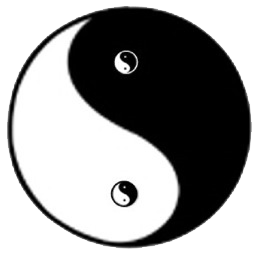Tom Burns
The Challenge for the Professional Social Scientist

As a social scientist, I am privileged to come from a discipline [Folklore – the study of traditional artistic expression, custom and ritual] that is strongly oriented to research experience in the field as the best approach to both acquiring data and coming to an understanding of human individual and social behavior. The field oriented, case study approach keeps me grounded and constrained by real behavior with real people in real human social and physical settings. The professional case study describes human behavior in its richness and complexity [ethnography], while ethnology is the study and interpretation of this descriptive data. I am an ethnographer-ethnologist interested in both the case study data on human behavior and its interpretation.
The challenge for the ethnographer is to observe the phenomena of his or her interest long enough to develop a full description of both the focal activities and how they are viewed and understood by the participants. The task of the ethnologist is to discover the system of relations that inform and thereby serve to explain the ethnographic data by utilizing the insights of social and psychological theory. And where existing theory or overall theoretical approach [a paradigm] is inadequate, the ethnologist must suggest how existing theory needs to be modified to provide for an adequate interpretation. The history of both ethnographic and ethnologic work strongly suggests that adequate description and penetrating analysis and interpretation both take the investment of a great deal of time and effort during which the researcher must remain both open-minded and committed to objectivity. This history also reveals that the most challenging research situations occur where the investigator’s basic theoretical assumptions as well as his or her assumptions about the fundamental nature of reality are put under great stress by the phenomena and the “native” interpretation of the phenomena.
My professional career as a social scientist has taken me into the heart of this most challenging research situation. The standard socio-psychological “vehicles” of interpretation for “explaining” the function and “meaning” of the artistic, psychic, and religious behaviors that I was investigating only took me to the periphery of what I came to understand was an adequate “explanation.” Confronted with available theory that was stretched to the point of absurdity, I had to step back and reach out more broadly to the ideas that were “out there” beyond the established paradigms and try to derive a more inclusive interpretive approach that was still available to intellectual and scientific conceptualization and understanding. The document Dynamic Humanism, presents a worldview that I propose allows for this more inclusive interpretive approach. Dynamic Humanism, the website, makes available my two major research case studies that led to this summation as well as interpretive essays that apply the Dynamic Humanism point of view to the interpretation of various social, economic, political and religious events and situations, mainly in American culture.
As an ethnographer/ethnologist, I am responsible for three detailed case studies [one in traditional art, one in religious belief and ritual, and one in psychic healing], all utilizing a great deal of life history data. From this ethnographic grounding, adequate understanding has taken me to the biggest of Big Picture issues: the nature and range of human mental capabilities, the role of different societies and cultures in promoting or limiting the use of these capabilities, and the place of what I refer to as human Intuition in human behavior that is significantly informed by the Spiritual or Subjective perspective on reality [art and religion]. As it turns out, I have found it necessary to take my Ph.D. seriously. In credentials, I am a “Doctor of Philosophy”, and I have had to adventure all the way from the examination of very specific human behavior to the most discursive philosophy in my search for what passes for “understanding” and “explanation” that both respects and is approachable by the Intellect. I contend that there is an intellectual framework within which the non-rational [Intuitive and Emotive] and all that emanates from it can be conceived and understood without the need to reduce the spiritual experience of reality [and all the genres of human behavior that primarily derive from it] to the social and psychological variables of the standard paradigms of interpretation.
For those who want more details on my biographic particulars, use the Publications button at the top of this web page and see the Personal Section in Right On. For more on my professional background and my personal experience in my field research, use the Publications button and consult the Prefaces for Dynamic Humanism, A Little Bit of Heaven Here, and The I Within Me. You may also find useful the Appendix section in A Little Bit of Heaven Here which provides a frank description for myself of “The Researcher’s Journey into Understanding.”
